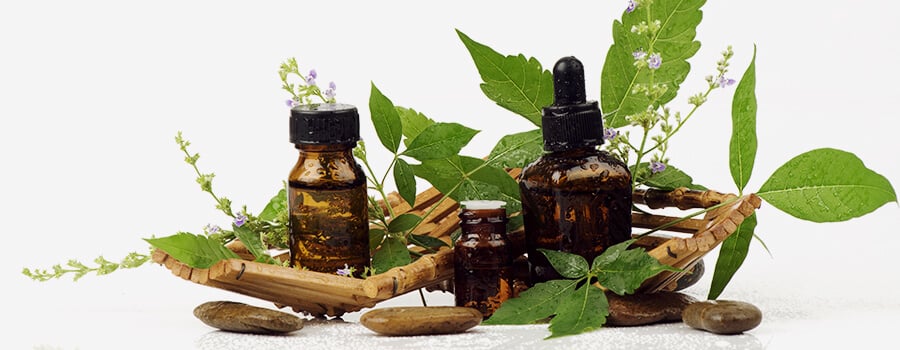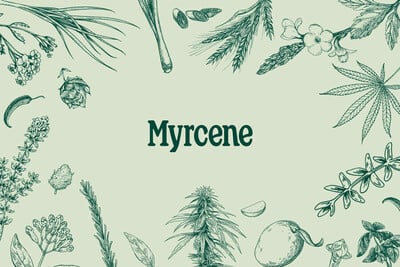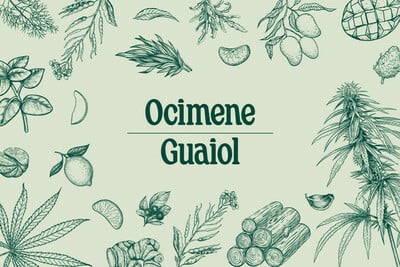.

Camphene - A Minor Terpene With Big Medicinal Potential
Terpenes were previously thought to only be responsible for cannabis' flavor. Now, research is showing that terpenes also have big medicinal potential. Camphene, from the minor group of terpenes in cannabis, displays impressive characteristics that could make it effective in the prevention of heart disease.
Terpenes are organic compounds found in cannabis and many other plants. They are a major component of plant resin and play an important role in the diversity of aromas of cannabis strains. Previously thought of as being only responsible for the flavors of cannabis, modern research is now showing that terpenes pose significant medicinal benefit, in addition to cannabinoids such as THC, CBD, and dozens of others. What’s more, terpenes can provide their medicinal benefits without any side effects.
TERPENES MAKE FOR MUCH MORE THAN JUST FLAVOR
Among the most commonly found major terpenes are myrcene, pinene, limonene, and linalool—highly volatile compounds with a very strong odour. It is believed that plants produce terpenes as a way to deter insects and other predators. Virtually all of the major terpenes have been shown to be therapeutically valuable[1], displaying anti-inflammatory, antifungal, and antibacterial properties.
CAMPHENE - A “MINOR” TERPENE SHOWING BIG MEDICINAL POTENTIAL
Camphene belongs to a group of more than 150 minor terpenes found in cannabis. Camphene emanates a very pungent and musky odour of fir needles and damp earth, although its odour is not perceived as very pleasant. Camphene is sometimes also mistaken for the terpene myrcene, which has a similar scent, but is more abundant.
Just like the other terpenes in cannabis, camphene displays various medicinal properties and stands out as being a very powerful antioxidant. In traditional medicine, camphene was used for treating bacterial and fungal infections, where it makes an effective natural remedy for eczema, psoriasis, and other skin conditions.
Camphene can also be found in various foods, fragrances, ointments, and topical creams where it’s used as an additive and flavor-enhancer.

Latest research is now suggesting that camphene is particularly significant in its ability to lower cholesterol levels and triglycerides in the blood, therefore reducing the risk for heart disease.
A study published in 2011[2] was able to demonstrate camphene’s ability to reduce cholesterol and triglyceride levels, the two main causes for heart disease, including stroke and heart attack.
For the study, the researchers also examined various other terpenes including several from the major terpene group (linalool, myrcene, pinene, and beta-caryophyllene), but found these much less effective for lowering cholesterol and triglyceride levels. The researchers concluded that camphene could be an effective “alternative lipid lowering agent and merits further evaluation”.
CAMPHENE DELIVERS MEDICINAL BENEFITS WITHOUT SIDE EFFECTS
Medical science is finally beginning to accept that the compounds found in cannabis, including cannabinoids and terpenes, display significant medicinal potential and may well be able to replace or augment traditional pharmaceuticals. What’s more, terpenes can deliver their therapeutic value without any negative side effects.
Today, some of the most common conventional treatments for lowering blood sugar levels are so-called statins, which belong to a class of blood lipid-lowering medications. Although they are usually effective in lowering cholesterol, these medications often come with negative side effects that can range from muscle pain, cramping, and headaches to kidney or liver failure. Camphene, which poses similar benefits, hasn’t been shown to display any adverse side effects whatsoever. The fact that terpenes from cannabis do not display any addictive characteristics, such as those from opiates and other commonly prescribed drugs, is another major benefit that needs to be considered.
Like with most subjects related to cannabis, there is still a lot more research that needs to be conducted before we can fully understand the potential of camphene. However, a growing body of research suggests big things for this minor terpene.
- Natural Terpenes Influence the Activity of Antibiotics against Isolated Mycobacterium tuberculosis https://www.ncbi.nlm.nih.gov
- Camphene, a Plant-Derived Monoterpene, Reduces Plasma Cholesterol and Triglycerides in Hyperlipidemic Rats Independently of HMG-CoA Reductase Activity https://www.ncbi.nlm.nih.gov










































